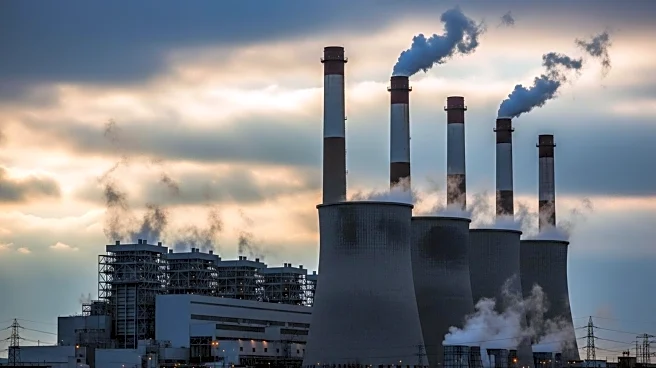What's Happening?
The U.S. Department of Energy (DOE) has issued an emergency order requiring Constellation Energy to continue operating two 380-MW gas- and oil-fired units at its Eddystone power plant near Philadelphia until November 26, 2025. This decision comes in response to potential hot weather and increasing demand, which have raised concerns about resource adequacy in the PJM Interconnection grid. The units were initially scheduled for retirement on May 31, 2025, but were kept online due to an earlier emergency order. The DOE's actions are part of a broader effort to support fossil-fueled power plants, while simultaneously making it more challenging to develop wind and solar energy projects.
Why It's Important?
The DOE's decision to extend the operation of the Eddystone power plant highlights ongoing concerns about energy resource adequacy in the PJM Interconnection grid, which serves 13 Mid-Atlantic states and the District of Columbia. This move underscores the challenges faced by the grid in balancing supply and demand, particularly during periods of extreme weather. The reliance on fossil-fueled power plants raises questions about the long-term sustainability of energy policies, especially as the administration seeks to limit the growth of renewable energy sources. The decision has sparked opposition from environmental groups and consumer advocates, who argue that the emergency order is inconsistent with the actual energy needs of the region.
What's Next?
The DOE's emergency order has prompted legal challenges from various groups, including the Sierra Club and Earthjustice, who are seeking to overturn the decision. These challenges may lead to appeals court proceedings, potentially impacting future energy policy decisions. Additionally, the ongoing debate over resource adequacy and the role of fossil fuels in the energy mix is likely to continue, with stakeholders advocating for increased investment in renewable energy and improved grid management strategies.









